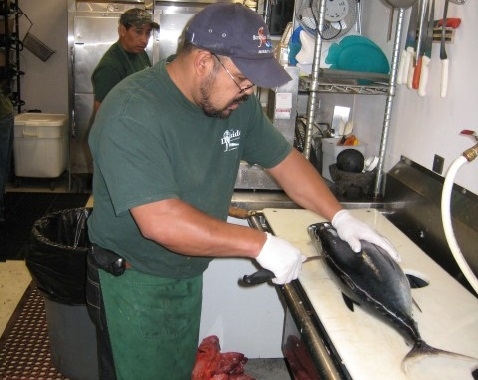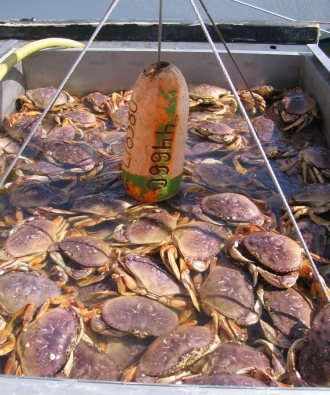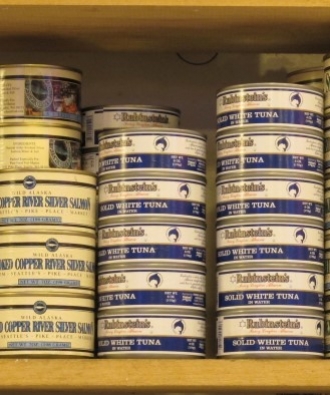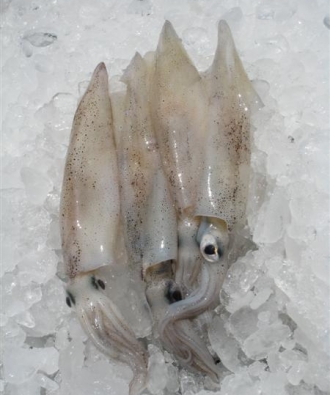
Institutional sales entail fishermen selling their catch -- typically in bulk -- to food service providers at sites such as businesses, universities, schools, hospitals, and government agencies. Institutions, in turn, prepare and sell or serve it to staff, students, patients, visitors and other consumers. With this type of marketing arrangement, fishermen are not engaged directly with the consumer, but rather with the buyer for the institution. The fishermen typically must deliver the product and may need to do some cutting (portioning) and packaging beforehand, requiring compliance with HACCP regulations. They also may need to become an approved seafood supplier, which will require HACCP training. Among institutional buyers, particularly those of high-tech companies, there is growing interest in purchasing local products, creating a market opportunity for commercial fishermen.
To evaluate whether this type of alternative market is an option for you, explore the benefits and challenges (in addition to those on the Considerations page), key questions, tips and resources in the boxes below.


